Finding the Sweet Spot in Renewable Energy
Biogas Could Change the Way our Electricity is Powered
With a vast livestock population across the country, animal manures are resources that, if harnessed effectively, can help Malaysia reduce its reliance on fossil fuel and at the same time, lower our CO2 emission.
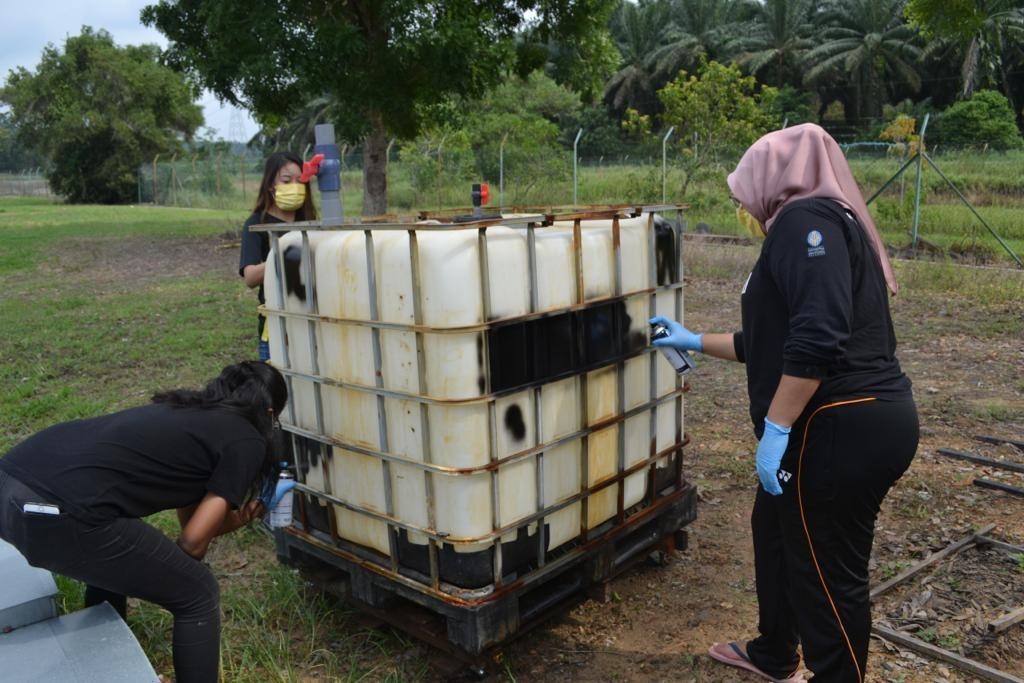 It's a tall order. Fortunately, a group of 18 chemical engineering students are currently looking for ways around the challenges. "We are promoting green energy from the resources left over from our livestock farms and plantation estates," says Adilia Al-Yafii Muhammad Alan Al-Yafii, project manager of Moonure Power. The more responsible approach, she says, is a "circular economy" model, in which everything is reused or recycled.
It's a tall order. Fortunately, a group of 18 chemical engineering students are currently looking for ways around the challenges. "We are promoting green energy from the resources left over from our livestock farms and plantation estates," says Adilia Al-Yafii Muhammad Alan Al-Yafii, project manager of Moonure Power. The more responsible approach, she says, is a "circular economy" model, in which everything is reused or recycled.
By background, the group is currently promoting the use of renewable methane. It's amazing what a simple improvisation can do says Adilia. "Basically, we mixed up cow's manure with water to produce biogas. This biogas can be used as an alternative source of energy," explains Adilia.
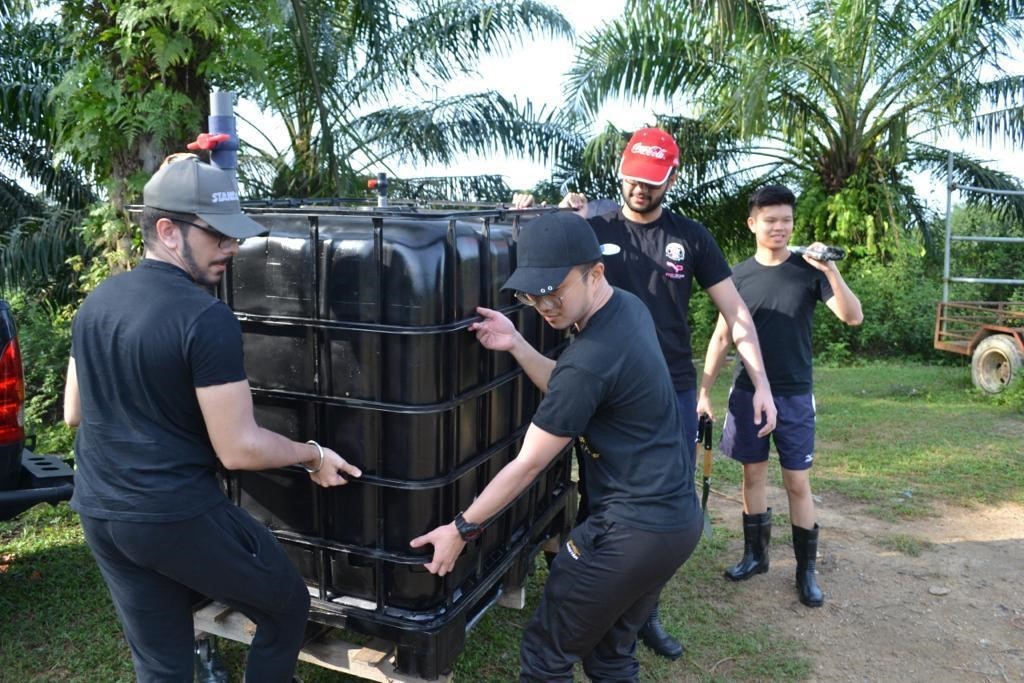
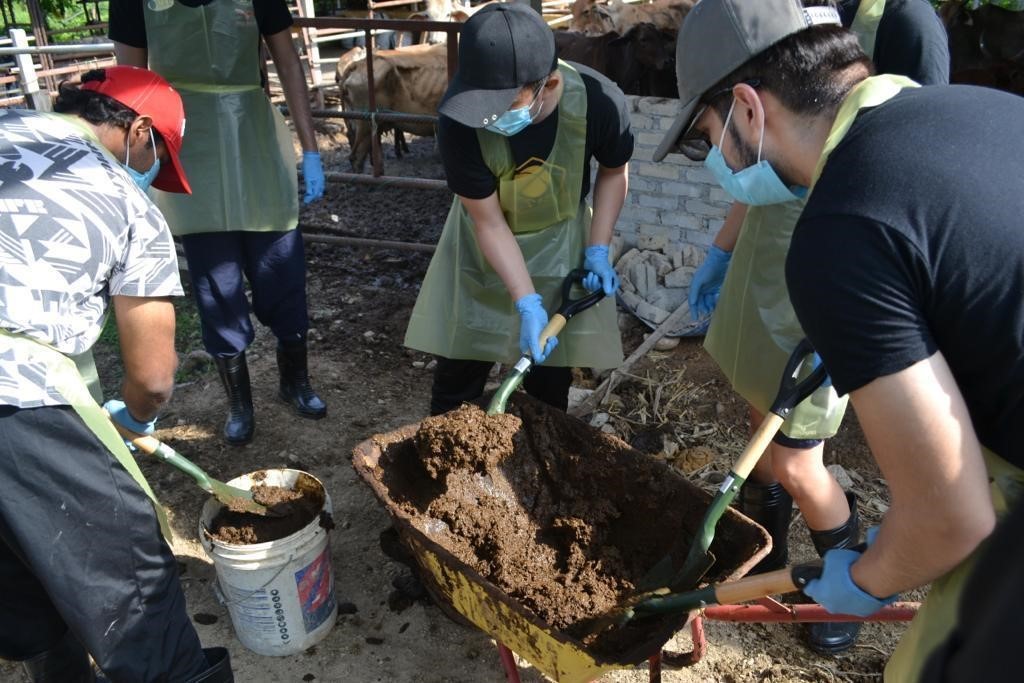
"Chemical engineering is helping to inform the development of alternative energy sources, such as biogas. Biogas could change the way our electricity is powered, making it more efficient and affordable," adds Adilia.
Creative solutions
It all started with a mini experiment that took place on the 23rd of July this year. Subsequently, the third year chemical engineering students combined forces to design a mini scale of the bio-reactor.
Initially however, the group faced a problem to find a suitable partner. Adilia says, "At the beginning, we couldn't find the right kind of manure to begin our testing. Previously, all the farms we came into contact with used antibiotics in their feed. When cows have this in their diet, we found that the bacteria needed to generate the biogas was absent."
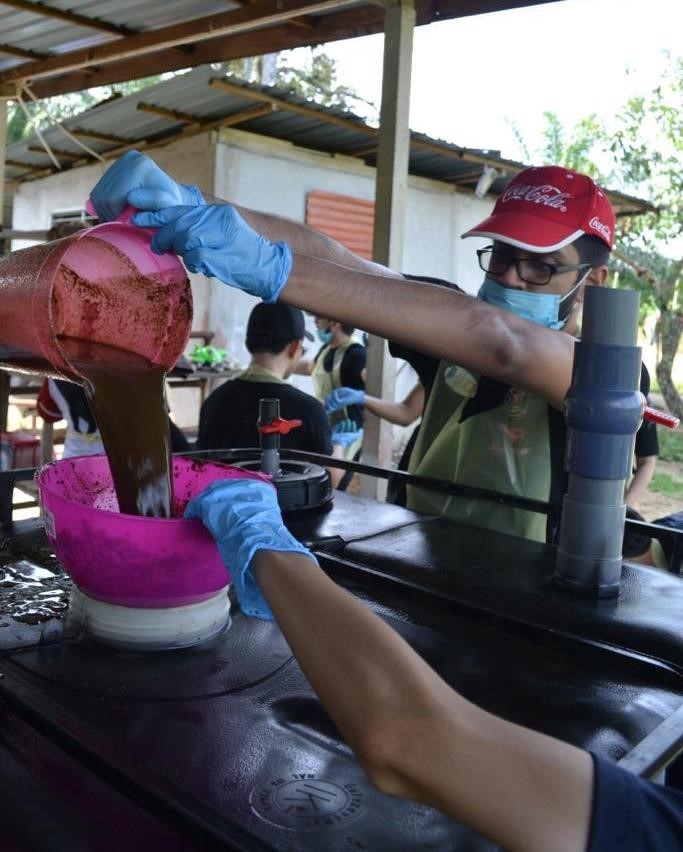 From there, the team found out that they could only choose farms that don't use antibiotics in their livestock feed. After a long search, this led the team to a farm in Sungai Siput, Perak called Viridix."
From there, the team found out that they could only choose farms that don't use antibiotics in their livestock feed. After a long search, this led the team to a farm in Sungai Siput, Perak called Viridix."
Adilia says, "They were actually very interested to develop a biogas reactor but they didn't have the expertise. Besides the energy we provide, it could also help the farm to reduce their use of LPG."
Following this, the team started to mobilise the project. To store the manure, an intermediate bulk container tank was used. Adilia says, "First, we spray painted the tank black to ensure maximum anaerobic digestion. And then we shovelled up 400 kgs of cow manure into the tank and mixed it up with 400 litres of water."
However, it had taken the team a couple of months to generate usable power. Adilia recalls, in the first month, the reactor produced more CO2 volume than methane. After stabilizing the mixture for about a month, at the end of August, the group was finally able to utilise the gas. Adilia also notes that everything was done organically.
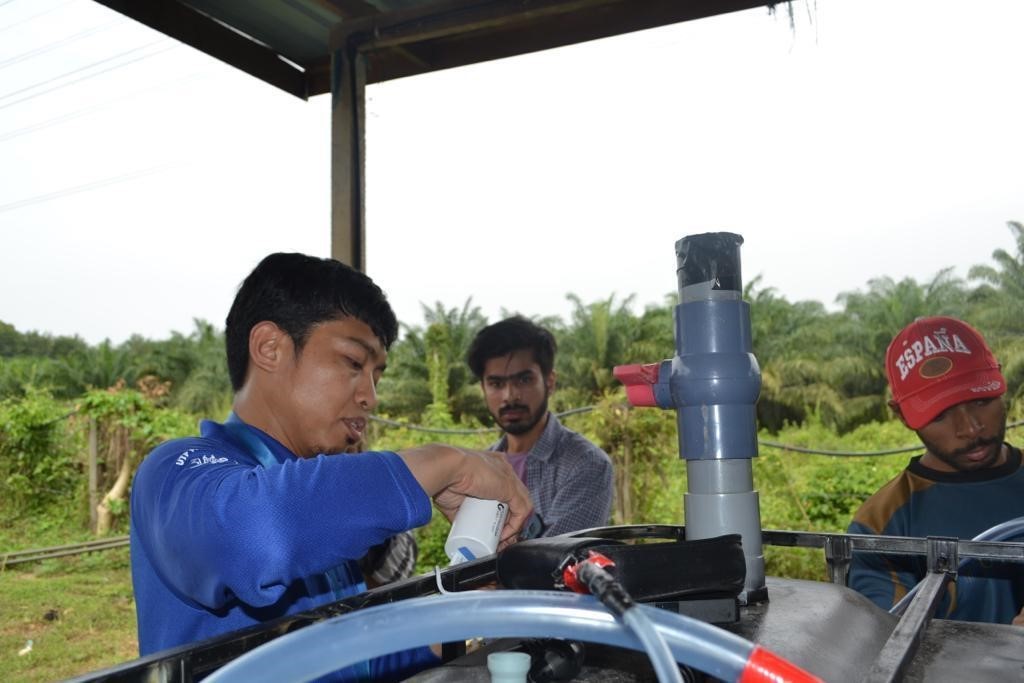 Next, the tank was connected to an inflatable air roller which acts as a storage tank. According to Adilia, one single storage tank has the capacity to power up about 10 households. In the third month, the power was finally ready to be transferred back to the farm and households around the area.
Next, the tank was connected to an inflatable air roller which acts as a storage tank. According to Adilia, one single storage tank has the capacity to power up about 10 households. In the third month, the power was finally ready to be transferred back to the farm and households around the area.
After the mobilization, Moonure Power's members headed down to SMK Bawong, Sungai Siput Perak to share their findings with 55 higher secondary school students regarding alternative power sources. "It's in one of their syllabus, so they could relate to our project," says Adilia.
"We also cooked and ate with them using the energy generated from the tank. Potentially, this could power up a remote village and sustain it for months," suggests Adilia.
However, it was tough to get to grips with the project at first says Adilia. "The smell of the manure was atrocious at first," says Adilia. Additionally, according to Adilia, after the manure is digested, the left over can be used to fertilise soil or sold, thereby creating another revenue stream for the farm operator.
Ultimately, the group aims to promote a circular economy, in which industry and community maximize their resources and minimize their waste.
Indeed, this is another prime example of UTP's profound career connected learning and industry collaboration. From the work we do, we foster long-term relationships with our global social-impact partners to prepare our students, people and researchers as global citizens.
As a leading university in engineering, science and technology, our people are driven to exceed their professional objectives and contribute towards overcoming capability deficit across all sectors and industries.
Published on 27 December 2019

